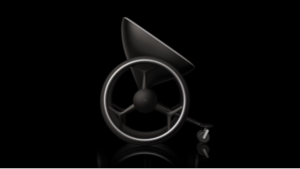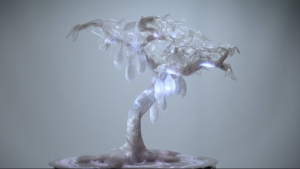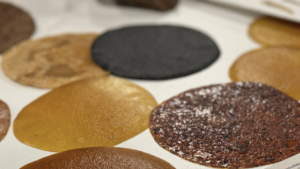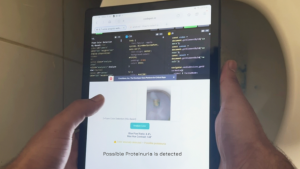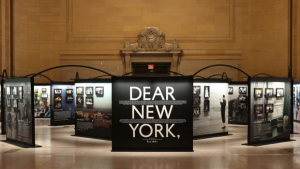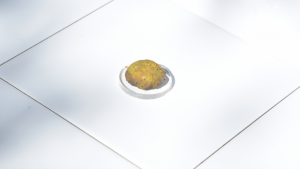First Published in
The annual Freewheeling Festival ran from 19 to 22 March at the Stanford Valley Guest Farm near Hermanus. As the website sums up, “its sustainability ethos is holistic and far-reaching, and includes not only post-carbon and green issues, renewables, land and agriculture, but also education, economics, wellness and personal development, arts and culture, and the full spectrum of community development.”
While neatly summing up the agenda, this blurb gives no clue to the actual experience of the Freewheeling Festival. Although billed as a “future-thinking festival”, it is decidedly not a forum of talking heads, postulations and opinion bantering. Changing one’s opinion can come and go with the season. What Freewheeling Festival organisers, Marian Goodman, Jonathan Rands and Sam Kelly have admirably achieved is a space in which the mind itself is the object of design and in which consciousness is tuned, using the tool of the heart.
Let me explain. In his self-proclaimed “not the keynote address”, South African director of the University of Cambridge Programme for Sustainability Leadership, Peter Willis expounded on his “WILLIS” concept. WILLIS = the World I’d Like to Live in Someday. The beginnings of a widespread research project, the concept will be used to spark individuals’ emotional and creative spirits in dreaming of the ideal future world. According to Willis (the person) it is by activating the heart, not the mind, that a visceral, self-generating change can be effected. Once we have the vision, the science and solar panels, so to speak, will follow.
This was a common thread throughout the presentations – dream a positive vision of the future individually with the heart, and collectively the mind and world will follow. From economists Kiki Theo and Martin Wigand, and architects Malcolm Worby and Johan van Papendorp, to yogis Suzanne Leighton and Ruth Mattison, creative practitioners Dr Dorian Haarhoff and Toni Bold, and many more on the three-stream programme.
Well, all presentations except the cold shower of reality courtesy of Max du Preez. Not a bad thing. Du Preez’s presentation inadvertently highlighted the real driving energy of Freewheeling, which is the some 300 delegates who have ridden their bicycles up the steepest hill in the wide open wilderness and are letting go of the handlebars on the downhill. There are no passengers at Freewheeling and the emboldened audience shouted Du Preez down as hard as he tried to squash the spirit.
The leaders of this coup of the traditional journalistic regime? Wait for it, it will give you goosebumps… The youth. Thirty young people, aged 18 to 25, from communities around the Western Cape had been sponsored to attend Freewheeling through the festival’s development initiative. This band of youngsters enlivened debates all round, but especially in the Du Preez presentation, demanding that the broken hand-me-down world that they had received from the elders was not good enough and that they flatly refuse to accept the doctrine of cynical complacency that went with it.
So be it. A Ben Okri quote that cropped up repeatedly throughout the weekend: “Accept no limitation, we have the power of solar systems in our minds.”
The annual Freewheeling Festival ran from 19 to 22 March at the Stanford Valley Guest Farm near Hermanus. As the website sums up, “its sustainability ethos is holistic and far-reaching, and includes not only post-carbon and green issues, renewables, land and agriculture, but also education, economics, wellness and personal development, arts and culture, and the full spectrum of community development.”
While neatly summing up the agenda, this blurb gives no clue to the actual experience of the Freewheeling Festival. Although billed as a “future-thinking festival”, it is decidedly not a forum of talking heads, postulations and opinion bantering. Changing one’s opinion can come and go with the season. What Freewheeling Festival organisers, Marian Goodman, Jonathan Rands and Sam Kelly have admirably achieved is a space in which the mind itself is the object of design and in which consciousness is tuned, using the tool of the heart.
Let me explain. In his self-proclaimed “not the keynote address”, South African director of the University of Cambridge Programme for Sustainability Leadership, Peter Willis expounded on his “WILLIS” concept. WILLIS = the World I’d Like to Live in Someday. The beginnings of a widespread research project, the concept will be used to spark individuals’ emotional and creative spirits in dreaming of the ideal future world. According to Willis (the person) it is by activating the heart, not the mind, that a visceral, self-generating change can be effected. Once we have the vision, the science and solar panels, so to speak, will follow.
This was a common thread throughout the presentations – dream a positive vision of the future individually with the heart, and collectively the mind and world will follow. From economists Kiki Theo and Martin Wigand, and architects Malcolm Worby and Johan van Papendorp, to yogis Suzanne Leighton and Ruth Mattison, creative practitioners Dr Dorian Haarhoff and Toni Bold, and many more on the three-stream programme.
Well, all presentations except the cold shower of reality courtesy of Max du Preez. Not a bad thing. Du Preez’s presentation inadvertently highlighted the real driving energy of Freewheeling, which is the some 300 delegates who have ridden their bicycles up the steepest hill in the wide open wilderness and are letting go of the handlebars on the downhill. There are no passengers at Freewheeling and the emboldened audience shouted Du Preez down as hard as he tried to squash the spirit.
The leaders of this coup of the traditional journalistic regime? Wait for it, it will give you goosebumps… The youth. Thirty young people, aged 18 to 25, from communities around the Western Cape had been sponsored to attend Freewheeling through the festival’s development initiative. This band of youngsters enlivened debates all round, but especially in the Du Preez presentation, demanding that the broken hand-me-down world that they had received from the elders was not good enough and that they flatly refuse to accept the doctrine of cynical complacency that went with it.
So be it. A Ben Okri quote that cropped up repeatedly throughout the weekend: “Accept no limitation, we have the power of solar systems in our minds.”





